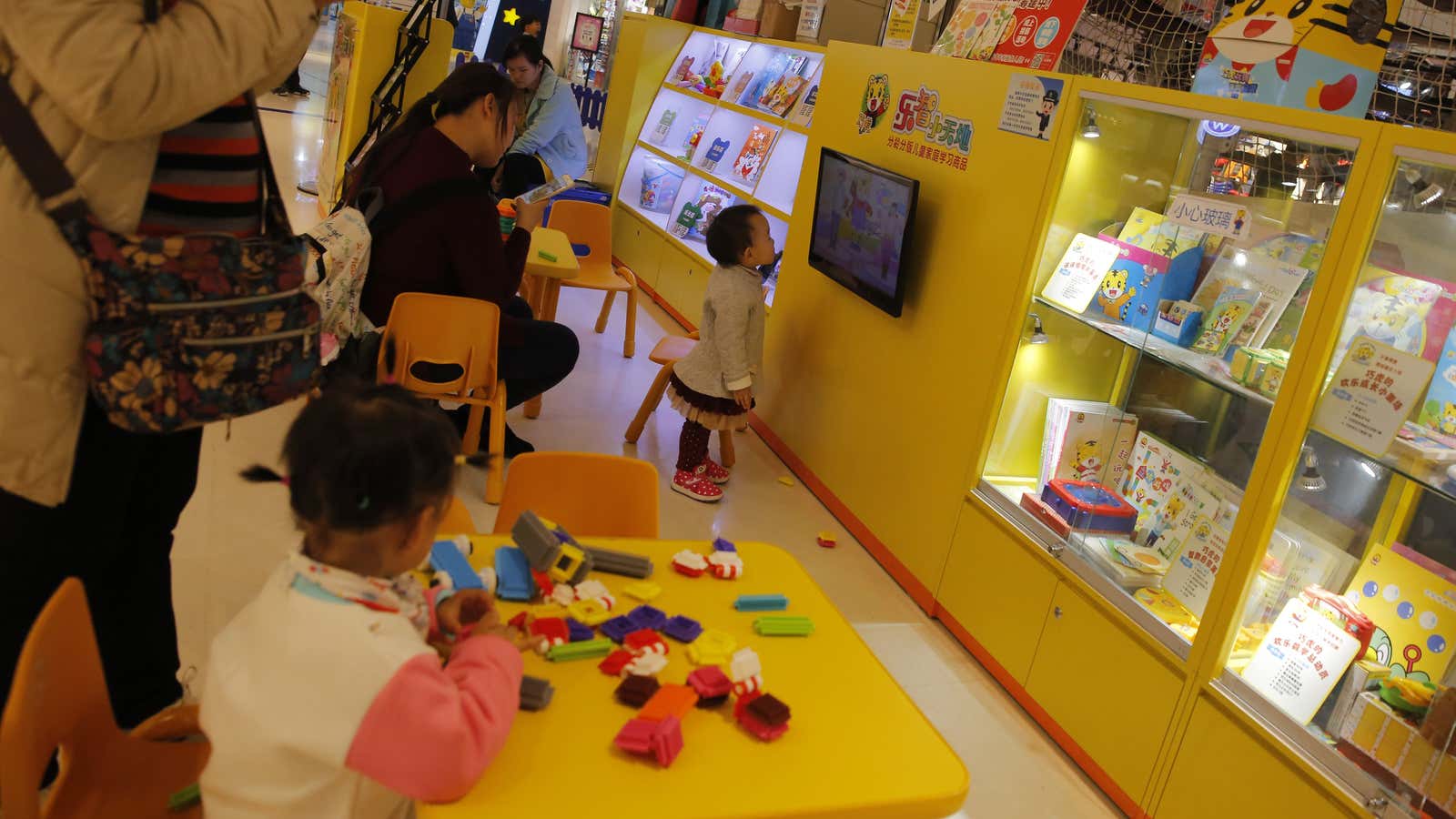“Rich children go abroad, middle-class children get poked with needles, lower-class children get evicted from their homes.”
That saying has been circulating in Chinese social media in recent days, following a series of tragedies in Beijing. The second part relates to allegations this month of child abuse at a high-end kindergarten, where children were found to have needle holes in their skin and other signs of mistreatment. The third refers to the ongoing crackdown on illegal dwellings in neighborhoods on the city’s fringes, many of which are home to migrant workers and their children.
The saying underscores the sense of deep unease that comes with being middle class in China, and the fragility of the social compact that exists between the middle class and the government. Andrew Nathan, a China expert and political-science professor at Columbia University, noted in a 2016 journal article (pdf):
Politically, the middle class is caught between a ruling party above, in which obscure and dangerous struggles appear to be taking place in the form of an anticorruption campaign, and a mass of workers and peasants below, who are perceived as uncivilized, seething with discontent, and possessing interests that the middle class sees as adverse to their own.
The sentiment becomes more pronounced each time a new problem or crisis rolls around. In 2008, Chinese parents had to grapple with the reality that despite their wealth, the food they feed their children could be poisonous, after tainted infant-formula products killed six babies. The reverberations of that can still be felt today, with parents around the world avoiding baby products from China and buying instead from countries with more trusted consumer-protection agencies. In 2015, a powerful chemical explosion near expensive apartments in the port city of Tianjin again challenged the notion (paywall) that China’s middle class were cushioned from the negative effects of living in an authoritarian state, with victims powerless to demand appropriate compensation.
Nearly 60 child-abuse incidents have been uncovered in kindergartens in the country since 2010, according to Chinese media outlet Caixin. Earlier this month, another case was exposed at a Shanghai day-care center affiliated with Ctrip, the country’s biggest travel agency, with leaked video footage showing a teacher apparently force-feeding a child wasabi, among other abuses.
The kindergarten in the most recent scandal belongs to RYB Education, a US-listed operator of early-learning schools in China. The abuse allegations resonated far and wide in China—but wouldn’t have, some argue, were a more a modest school involved. Monthly tuition fees at the RYB school come to about 5,000 yuan ($758)—around 10 times (link in Chinese) the fees of a Beijing public kindergarten, and roughly half the monthly income of a local family.
“Why is it that even though China is so economically powerful, these things still happen, and even in Beijing?” asked Chen Yu, a 25-year-old civil engineer based in the southwestern city of Kunming. Chen has no children and earns about 100,000 yuan ($15,000) a year, or around four times the city’s average (link in Chinese). “We spend so much money in order to buy a sense of security. Our sense of shock comes from the huge gap between our expectations of what our lives [as middle-class people] should be, and what reality is like.”
Almost a week after news of abuse allegations at RYB broke, not only has public discussion of the incident been stymied by censors, but Beijing authorities said yesterday (Nov. 28) that no abuse took place at all. In addition, they arrested one person for fabricating the allegations.
Given the heavy censorship environment, it’s unlikely that the aggrieved parents can or will take on authorities. Columbia University’s Nathan noted that, compared to some countries, members of the middle class in China are less likely to assert themselves, and are often supporters of the rigid political system.
Some action has been taken after the RYB scandal. Investors in RYB Education, listed on the New York Stock Exchange, have sued for damages on the grounds that the company failed to disclose its lack of safety policies, resulting in the company trading at “artificially inflated prices.” China’s State Council has called for a nationwide inspection of kindergarten operators (link in Chinese), and Beijing police said they have detained a female teacher at RYB linked to the case. RYB itself said it has fired the head of the kindergarten and a teacher and would provide treatment for students.
Still, many in China are left with a familiar sense of unease. “The so-called middle class is more like an illusion,” said Zhang, a thirty-something manager in the fashion industry. (For privacy reasons she asked to be identified only by her last name and wouldn’t disclose whether she had children.) Living in Beijing, Zhang holds a university degree, owns an apartment and car, and earns around 360,000 yuan ($55,000) a year. When she encounters incidents like the RYB case, she said, “I feel like I’ve been abandoned by the whole city. No matter how much education you’ve had, how hard you work… When someone sticks needles into your child’s body, you find that you are powerless.”
